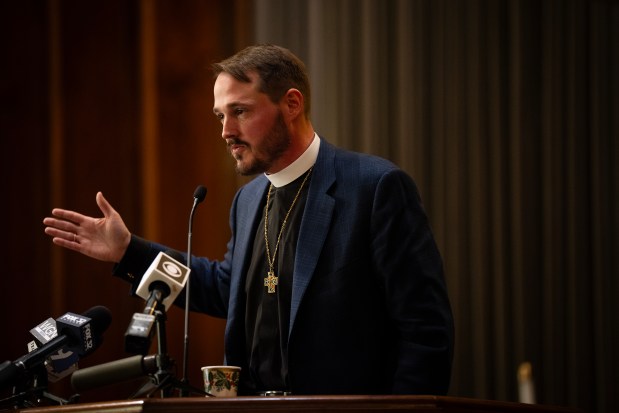After an hour of debate at a Lincolnwood Village Board meeting about whether a proposed community center included sufficient parking, Village Attorney Steve Elrod discovered a document showing it already had what it needed for approval.
For the village, the biggest stumbling block to approving the paperwork allowing the Upward Community organization to convert a building at 7120 N. Ridgeway Ave. into a Jewish counseling and community center was the developer’s plan to lease eight parking spaces from the neighboring property at 7100 N. Ridgeway Ave.
Trustees threatened to block the proposal because a lease would require Lincolnwood to certify that the spaces were available on a perpetual basis.
At its Feb. 20 meeting, the Village Board voted unanimously to grant six variances and two special use permits to allow the organization to convert the 10,000-square-foot building into a center providing counseling, intervention and other services for children, teens and young adults.
Elrod received a copy of the proposed “lease” during the discussion and announced the agreement was actually the “restrictive covenant” for which trustees were looking.
“I just received a copy of the document. It is a restrictive covenant. I’m not sure why you’re calling it a lease,” he said. “This is what we look for.”
Village President Jesal Patel suggested that Upward Community create a condition in the covenant, a legal restriction on a piece of property, to guarantee that the use of the eight parking spaces be ended only if Lincolnwood officials are notified.
Elrod said the document, which was already signed by the neighboring property owner, is “consistent with what we would want.”
“This document runs in perpetuity,” he said. “It gets recorded with the land.”
At the same time, Patel said it gives Lincolnwood the ability to remove the special uses and variations, if the agreement is voided.
“That would satisfy some of the consternation of the board,” he told the developer. “If there’s a notification provision, that satisfies some more consternation of the board that our staff doesn’t have to chase you down to make sure that it’s still in effect.”
The board’s vote will allow Upward Community to provide educational support, youth athletics, parenting and educational training, social skills development, and professional development at the center, according to a village Plan Commission Staff Report dated Jan. 10.
The property in question sits in a light manufacturing and business zoning district. It abuts residential property on the west side.
After learning of the restrictive covenant, Trustee Chris Martel withdrew his motion to deny the developers’ requests for special uses and variances.
Martel had opposed granting the requests without a restrictive covenant guaranteeing the availability of the parking.
“I’m not a fan of neighbor parking fulfilling these requirements,” he said. “What happens two years from now when they can’t meet the annual commitments? Are we really going to revoke their permission?”
Trustee Craig Klatzco, who also appeared to oppose the project until the restrictive covenant was discovered, said the community center needs the parking because it will be used six nights a week as “basically a medical center” for counseling and therapy.
“There’s a large amount of traffic at a medical center,” Klatzco said. “It’s going to rotate every 15 minutes. There is a lot of traffic going in and out. To not have enough parking spaces seriously concerns me because that street is fully parked.”
Elrod said the restrictive covenant protects Lincolnwood by guaranteeing the parking spaces will be available even if the neighboring property owner sells the property.
“A restrictive covenant gets recorded in the office of deeds,” he explained. “It is not a deed. It is a restrictive covenant that encumbers that property.”



